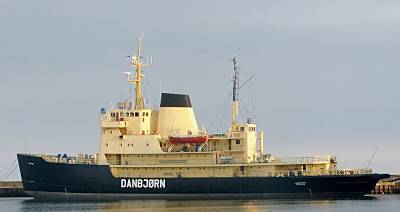WASHINGTON, July 15, 2010 — Coalition and Afghan forces are making steady progress in Helmand province, Afghanistan, the commander of Regional Command Southwest said today.
Marine Maj. Gen. Richard P. Mills stood up the new command in June. The area had been part of Regional Command—South. The general spoke to Pentagon reporters via teleconference from his base at Camp Leatherneck, located north of the provincial capital of Lashkar Gah.
The general’s command is focused on the central Helmand River Valley.
“It’s key ground,” Mills said. “The bulk of the nearly 1.5 million residents of Helmand province live here. Progress here has been steady. I look forward to progress to continue to show improvement over the coming months, and I think we’ll expand rapidly in the months ahead.”
The NATO forces in the command work closely with Afghan security forces and are partnered in almost all operations, Mills said. He noted that the quality and quantity of the Afghan forces has increased.
“We work with all of the Afghan security forces and have been very, very pleased at the increase in their capability, increase in their manning level and the increase in the equipment with which they operate,” Mills said.
The price for the steady progress has been steep, the general said. The Helmand valley is key ground to the insurgency. The Taliban controlled the region six months ago and there were many areas where coalition or Afghan government forces had never been.
Since launching offensives at the beginning of the year, the Taliban have been consistently pushed back, Mills said, and is losing control over the poppy crops that fund their activities.
Mills cited the Marja campaign as an example of operations in Helmand. Marja reflects progress that’s been made throughout the province, the general said. Six months ago, “anyone not involved with the insurgency that approached Marja drew fire and drew very accurate fire,” he said.
The insurgents said they were going to die in the fight against the coalition, but instead they’ve drifted away, Mills said.
“We had initial success on the battlefield, he said.
And the government and the coalition have built on that initial success. “Today,… there is an emerging police force down [in Marja],” Mills said. “It has some 140 members. It patrols in the streets. It runs checkpoints for security measures and enforces not only the basic laws expected to operate within a town but it also fights the insurgency when it’s called upon and when it’s attacked.”
There are two battalions of U.S. Marines in the area, he noted, as well as elements of the Afghan National Police Force.
Meanwhile, the general said, schools for both boys and girls have opened and the bazaars are back in business.
Though the Taliban remain in the area, they’re being forced out, Mills said. “And they are becoming desperate,” he added. “We are beginning to see more and more of that desperation reflected in the weapons and the tactics they use against us within the city.”
The Taliban, he said, are sneaking into the area at night and planting roadside bombs, which are aimed at the population.
“The number of children, the number of women, the number of innocents that we treat in our medical facilities, as the result of IEDs within Marja, is unacceptable,” Mills said. The Taliban’s murder and intimidation campaign shows desperation, the general said, noting the insurgents have “very little else to offer the people of Marja, other than threats.” When the Taliban controlled Marja, Mills said, there were no schools, because the insurgents had destroyed them. The insurgents, he said, also had closed the health clinics and destroyed most of the buildings that made up the bazaars.
The Afghans are fed up with Taliban manipulation, murder and extortion, Mills said, noting the people of the region are chasing away Taliban tax collectors and recruiters.
“We have reports of Taliban recruiters, again, entering villages, not just Marja but throughout the province, and once again being rejected and told to disappear,” he said.
The people of the province want to defend themselves, Mills said, noting he fully supports the establishment of a local Afghan police force to help deter Taliban aggression. Afghan President Hamid Karzai approved the concept yesterday.
Meanwhile, the general said, Afghan officials have set up an anti-insurgent tip line for the region.
The tip line has become “more and more useful to us as concerned citizens call in, tell us of IEDs that have been planted, tell us of factories producing IEDs, and tell us of strangers who don’t belong in the local neighborhood who have come in and begun to cause trouble,” Mills said.
Source:
U.S. Department of Defense
Office of the Assistant Secretary of Defense (Public Affairs)

 von
von 